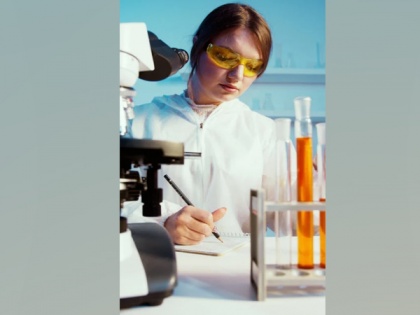Study shows age often plays bigger role than genetics in gene expression, susceptibility to disease
By ANI | Published: October 8, 2022 04:00 PM2022-10-08T16:00:34+5:302022-10-08T21:35:02+5:30
Our genetics, the environment and our age all play important roles in our health, but which of these is the most important? A new study suggests that in many cases, age plays a more important role than genetics in determining which genes in our bodies are turned on or off, influencing our susceptibility to disease.

Study shows age often plays bigger role than genetics in gene expression, susceptibility to disease
Our genetics, the environment and our age all play important roles in our health, but which of these is the most important? A new study suggests that in many cases, age plays a more important role than genetics in determining which genes in our bodies are turned on or off, influencing our susceptibility to disease.
In a study of the relative effects of genetics, aging and the environment on how some 20,000 human genes are expressed, the researchers found that aging and environment are far more important than genetic variation in affecting the expression profiles of many of our genes as we get older. The level at which genes are expressed -- that is, ratcheted up or down in activity -- determines everything from our hormone levels and metabolism to the mobilization of enzymes that repair the body.
"How do your genetics -- what you got from your sperm donor and your egg donor and your evolutionary history -- influence who you are, your phenotype, such as your height, your weight, whether or not you have heart disease?" said Peter Sudmant, UC Berkeley assistant professor of integrative biology and a member of the campus's Center for Computational Biology. "There's been a huge amount of work done in human genetics to understand how genes are turned on and off by human genetic variation. Our project came about by asking, 'How is that influenced by an individual's age?' And the first result we found was that your genetics actually matter less the older you get."
In other words, while our individual genetic makeup can help predict gene expression when we are younger, it is less useful in predicting which genes are ramped up or down when we're older -- in this study, older than 55 years. Identical twins, for example, have the same set of genes, but as they age, their gene expression profiles diverge, meaning that twins can age much differently from each other.
The findings have implications for efforts to correlate diseases of aging with genetic variation in humans, Sudmant said. Such studies should perhaps focus less on genetic variants that impact gene expression when pursuing drug targets.
"Almost all human common diseases are diseases of aging: Alzheimer's, cancers, heart disease, diabetes. All of these diseases increase their prevalence with age," he said. "Massive amounts of public resources have gone into identifying genetic variants that predispose you to these diseases. What our study is showing is that, well, actually, as you get older, genes kind of matter less for your gene expression. And so, perhaps, we need to be mindful of that when we're trying to identify the causes of these diseases of aging."
( With inputs from ANI )
Disclaimer: This post has been auto-published from an agency feed without any modifications to the text and has not been reviewed by an editor
Open in app